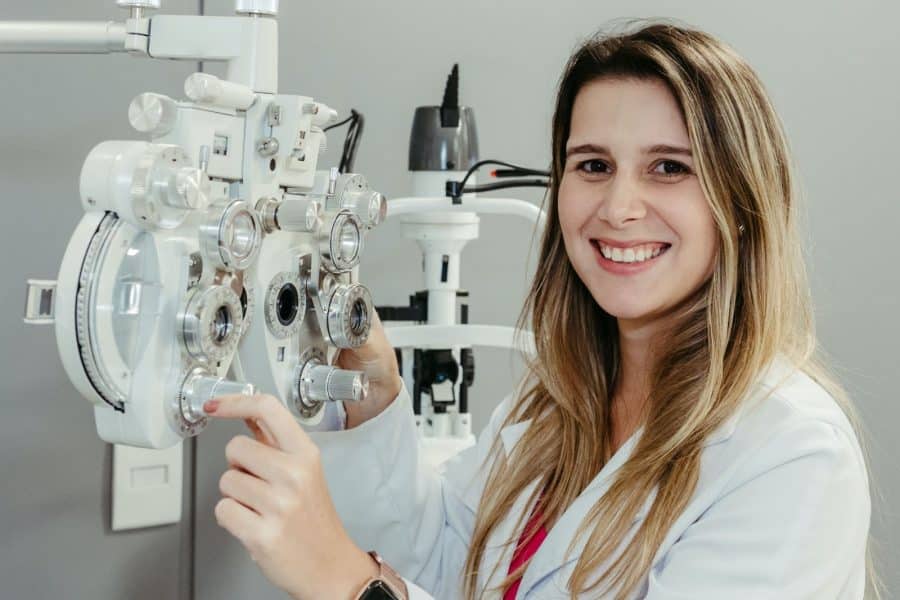Healthcare is a foundational industry across the world, but it’s also one that requires consistent evolution to keep up with the modern landscape. Data is one particular factor that has emerged to transform the world of healthcare in terms of understanding, diagnosing, and treating medical conditions.
Altogether it is the influx of technologies and their ability to collect, analyze, and interpret data that has changed how we approach healthcare. This role of data will be explored in this blog post, outlining how it has improved crucial factors such as patient outcomes and medical research.
Data-Driven Diagnoses
One of the most notable improvements data has brought to healthcare is its ability to enhance diagnostic processes. Electronic Health Records (EHRs) have long since replaced traditional paper records in most medical centers, providing a comprehensive digital repository of patient information. Having such key information in the form of electronic data, rather than paperwork, has been shown to facilitate more seamless communication between healthcare providers, even across organizations. It also allows for the integration of data-driven decision-making into the diagnostic process.
Previously, diagnoses of patients were mostly done through human intuition and knowledge, but machine learning algorithms have since stepped in to help. Powered by vast datasets, these algorithms identify patterns and anomalies in medical data, allowing for more efficient and accurate diagnoses. For example, those at risk of certain conditions can be identified faster through predictive analytics. This leads to proactive interventions and personalized treatment plans for a broader range of patients.
Personalized Medicine
Personalisation of medicine has become a more common reality for patients due to the aid offered by data. One-size-fits-all treatment styles are being left in the past for their inaccuracy and lack of substantial improvement for many patients. Instead, by analyzing a person’s lifestyle, medical history, and genetics, healthcare professionals can create a personalized treatment plan for them. Not only does this improve the effectiveness of treatment, but also reduces the potential and intensity of adverse effects, creating overall more optimal results.
Advancements in Medical Research
Medical research is driven by various factors, but few are as essential as data. Researchers draw the raw material of their studies from large-scale databases and repositories of patient data that have been made anonymous. This collective data can then be used to identify correlations, trends, and potential breakthroughs across medicine. Furthermore, complex medical challenges can be targeted and overcome with greater efficiency through the collaborative efforts of data-sharing initiatives.
Having collaborative structures in prominence empowers researchers to pool resources and work together in search of a common goal. Understanding of these kinds of data, as well as how to work alongside other researchers, can be obtained through universities such as UNSW. With many of these institutions standing at the frontline of data theories, it’s no wonder that future graduates will help advance medical research in new and exciting ways.
Operational Efficiency and Resource Management
While patient care and research are foundational for healthcare, they are not the only aspects that have been improved through the role of data. The operation aspects of many healthcare institutions have also been improved through the inclusion of data and its accompanying programs. Namely, the efficiency of resource management, including staffing and finances, to create smoother operations in healthcare facilities.
By including data analytics tools in these facilities, operations managers can gain insight into crucial areas such as staff productivity, resource utilization, and patient flow. This insight allows healthcare administrators to make informed decisions and predictions about everyday operations. For example, predictive analytics can help forecast patient admissions, helping hospitals to allocate resources effectively and optimize workflows. This not only improves the quality of patient care but also contributes to cost savings and overall operational efficiency.
Challenges and Ethical Considerations
Although the overall benefits of incorporating data into healthcare are undeniable, it’s still crucial to both acknowledge and address the challenges and ethical considerations associated with its widespread use. This is particularly true in the case of patient information as it has since been stored through data rather than in the form of paper copies. Thus, data security and privacy concerns should be at the forefront of healthcare institutions' considerations of patient information to keep them safe.
Finding a balance between protecting patient privacy and the benefits of data sharing is a relatively new healthcare practice, but it’s vital. That’s why institutions need to carefully consider each integration of data and incorporate robust regulatory frameworks.
Conclusion
Ultimately, the role of data in healthcare is multifaceted and increasingly crucial in a world of technology and evolution. Whether it’s enhancing the accuracy of diagnoses or fuelling groundbreaking research, data is sure to revolutionize how we approach healthcare.
Prominent figures in the healthcare ecosystem must then collaborate to harness the power of data responsibly, ensuring that the benefits are maximized while ethical considerations are carefully navigated. The next step for healthcare is fully embracing the data-driven future of its industry in order to create a more efficient and sustainable healthcare system for generations to come.


